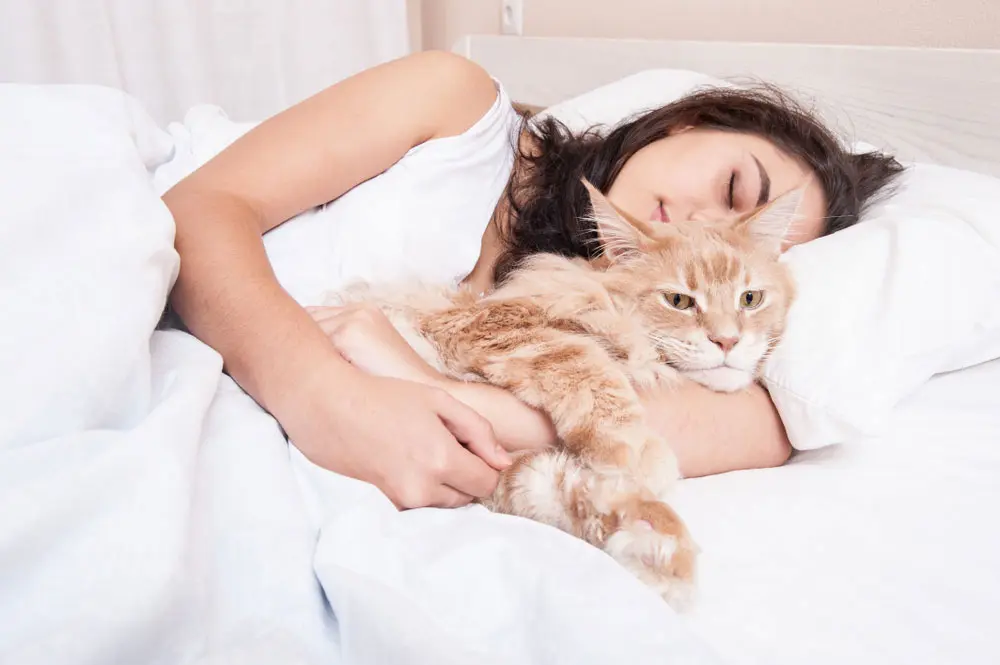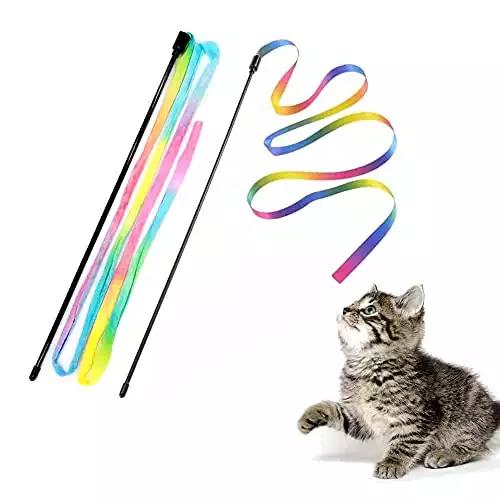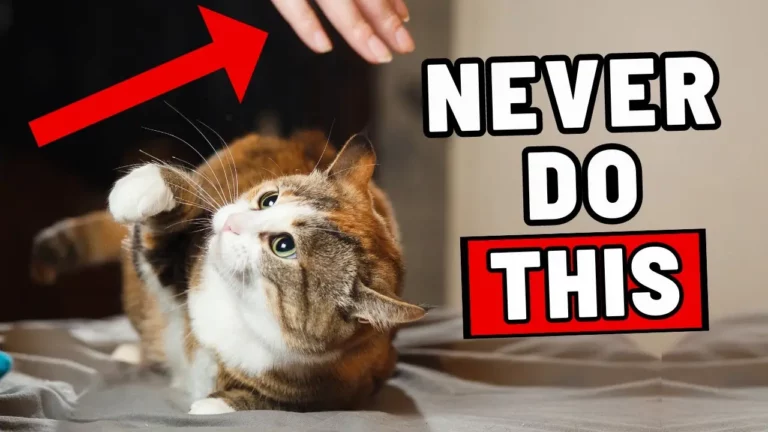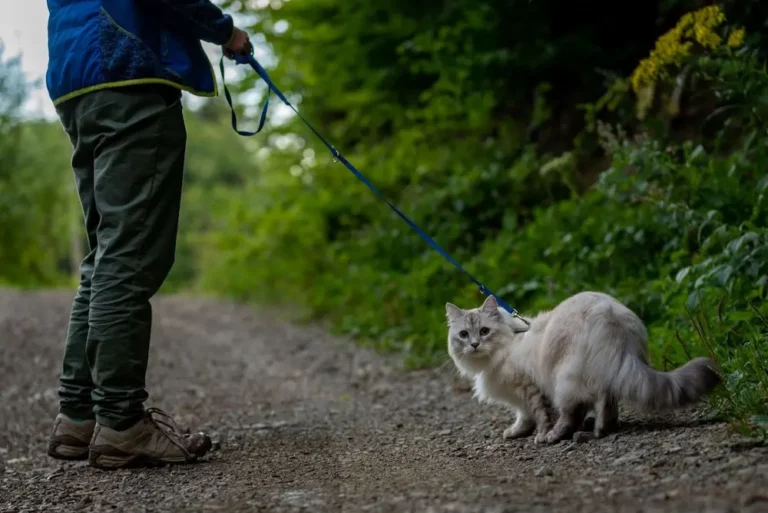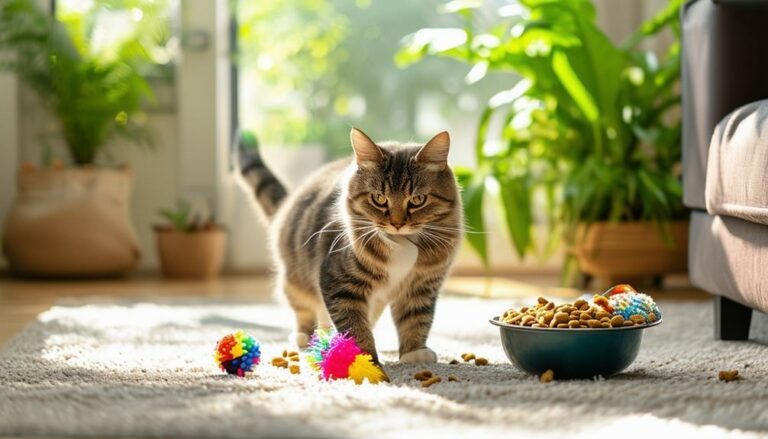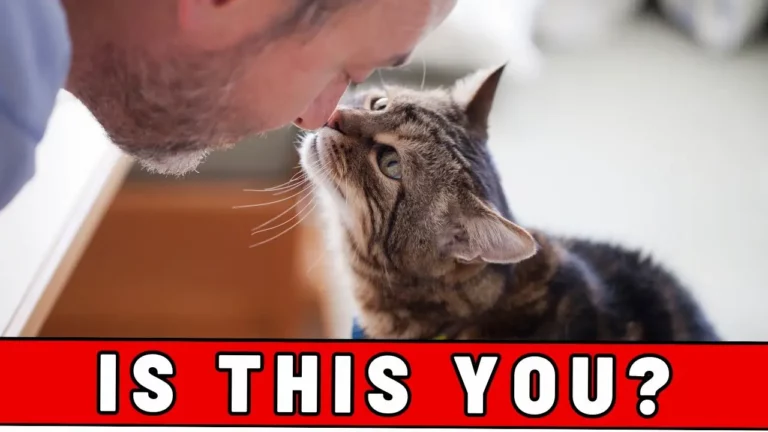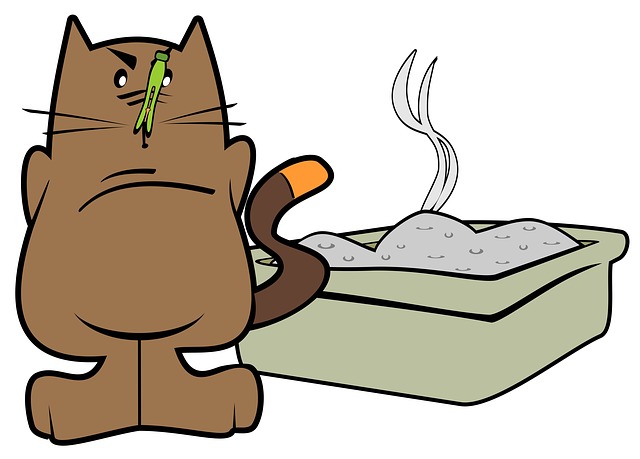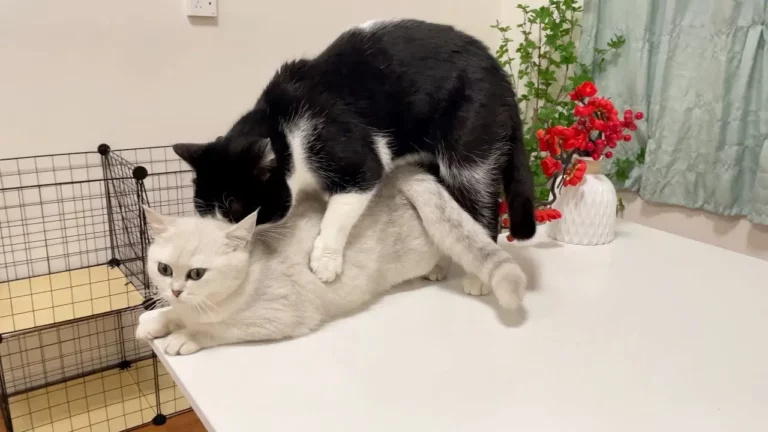Why Your Cat Is Suddenly Affectionate At Night: Signs, Reasons & Independence Tips
Ever found yourself pondering, “Why is my
You’re not alone.Â
Many
Understanding these behaviors can significantly strengthen the bond between you and your
Let’s jump into the why’s and how’s, unraveling this feline behavior.
What Are Signs Of An Overly Affectionate Cat ?
As a seasoned veterinarian with countless interactions with cats and their owners, I’ve observed numerous behaviors that pinpoint an overly affectionate feline.Â
Recognizing these signs early on can be crucial for understanding your
Let’s jump into some unmistakable signs.
Seeking Constant Attention And Cuddling
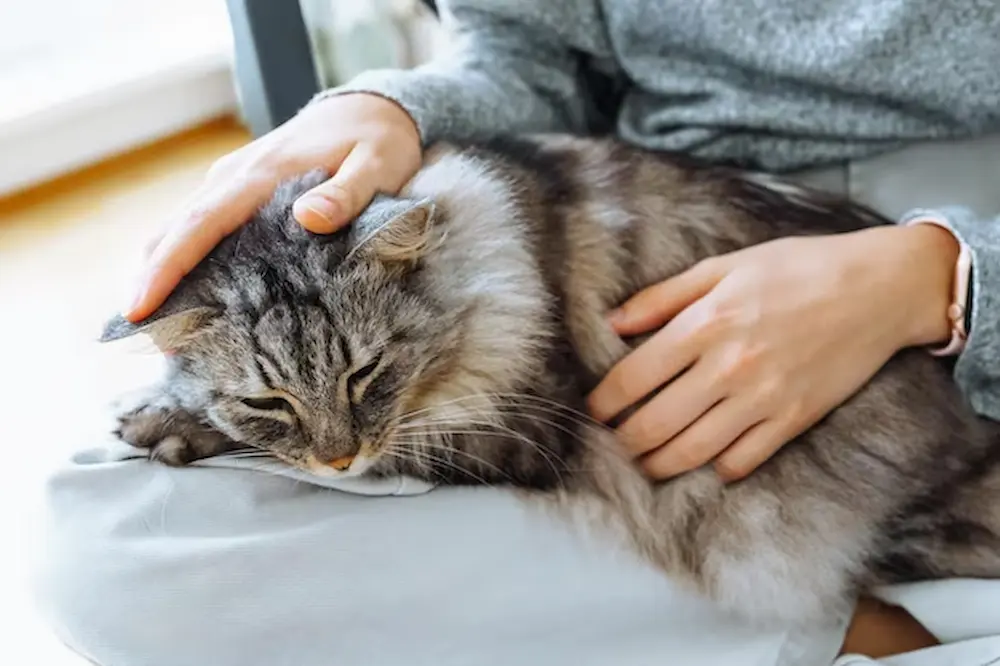
Cats seeking constant attention and cuddling often do so because they’re craving more interaction or may feel insecure.Â
A typical evening scenario might include your
While this behavior is endearing, excessive neediness could be their way of signaling that something’s amiss.Â
To mitigate this, try establishing a routine that includes dedicated playtime each day.
Playing With Your Clothes
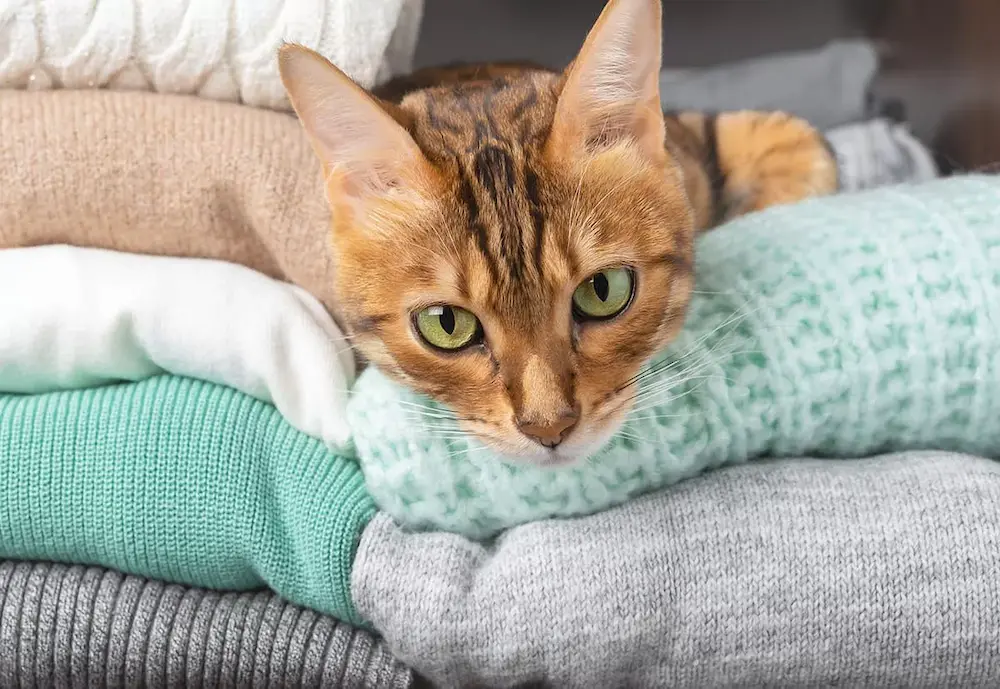
Another indicator of an overly affectionate
They might drag a sweater across the floor or cuddle up in your freshly laundered pile of clothes.Â
This behavior suggests that your
To address this need, consider leaving out an old piece of clothing with your scent on it for your
Following You Everywhere
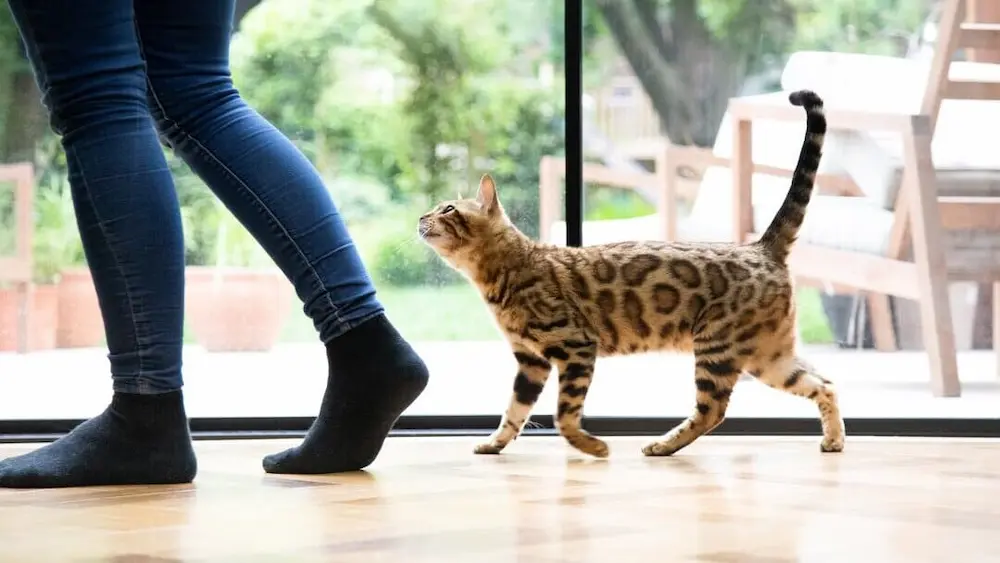
If you’ve ever noticed your feline shadowing you from room to room, you’re witnessing a classic sign of an affection-seeking
This behavior might seem charming, but it’s often their way of signaling that they want more interaction or are anxious about being alone.Â
To help your
Start with short intervals and gradually extend the duration.Â
Behaving Poorly
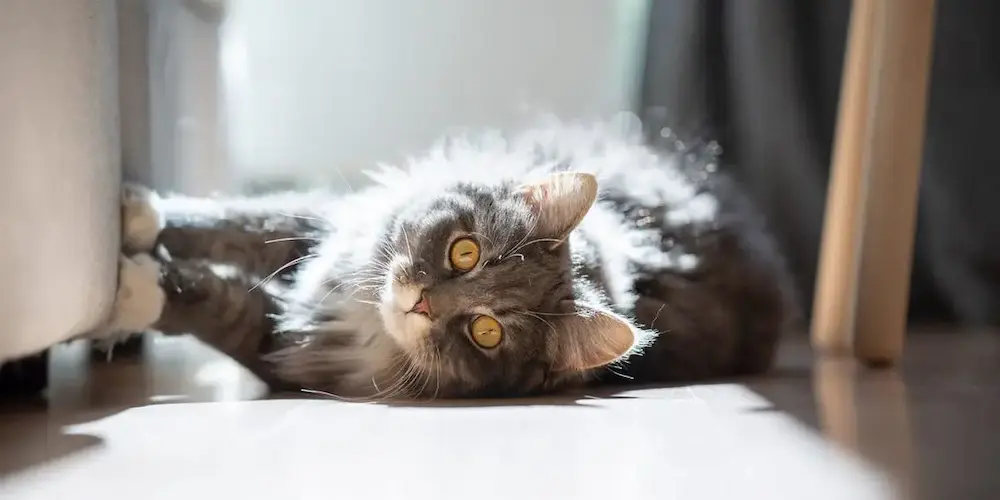
Unexpected behavior changes, such as your cat scratching furniture and other household items, often while you’re watching, point toward a feline desperate for your attention.Â
Interestingly, this is their way of saying, “Look at me!â€Â
But, addressing these behaviors with negative attention only reinforces them. Instead, redirect their energy towards positive outlets.
Setting up scratching posts near the areas they usually target and praising them for using it can be effective.Â
Similarly, interactive play sessions that tire them out can reduce these attention-seeking misbehaviors.
Reasons Why Your Cat Becomes Clingy At Night
Throughout my years of practice as a veterinarian, I’ve encountered many cases of feline behavior that puzzles owners.Â
One common question I get is, “Why has my
Multiple factors can contribute to this change in behavior.Â
Here, I’ll break down the key reasons why cats become clingy at night.
Aging
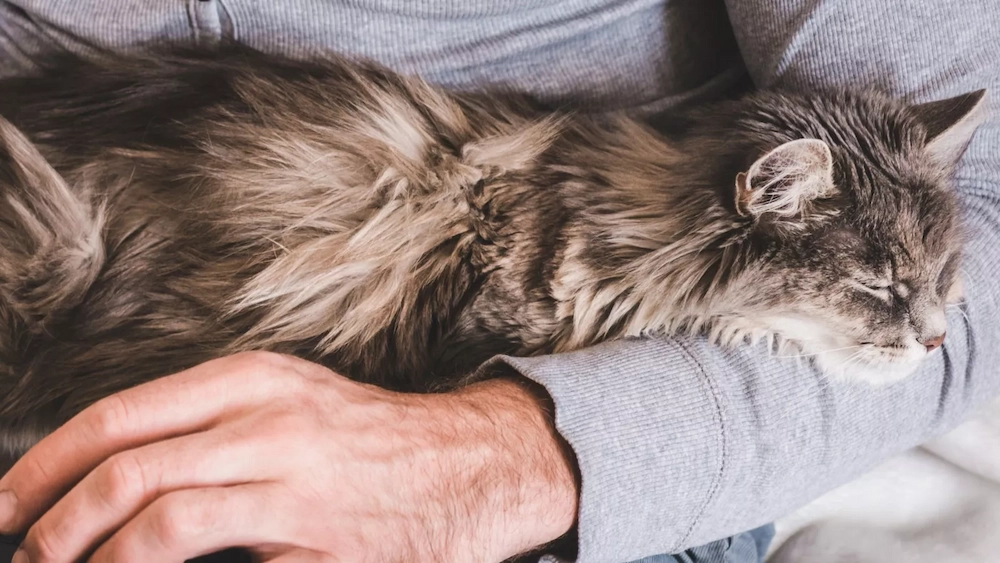
As cats age, they may seek more comfort and security, especially from their owners.
This often manifests as increased clinginess or affectionate behavior at night.Â
Older cats might find the warmth and proximity of their humans soothing. So, if your senior
As cats age, health concerns become more frequent, too. If you are wondering what do most older cats die from?, common causes include chronic kidney disease, cancer, and hyperthyroidism.
Hormones
Hormonal changes can significantly affect a
For instance, females in heat may exhibit more cuddly behavior, seeking the warmth and closeness of their owners.Â
Similarly, males sensing a female in heat nearby might become more affectionate, driven by their instincts.Â
It’s crucial to monitor these changes and consult with a vet who might recommend spaying or neutering to calm hormonal surges and reduce nighttime clinginess.
Anxiety & Stress
Just like humans, cats can feel stressed or anxious, which may make them seek out their owner for comfort more than usual.Â
Events like firework displays, thunderstorms, or even changes in household routines can unsettle cats, leading to cat anxiety, and driving them to find solace in your presence.Â
The key here is to provide a safe, peaceful environment and consider anxiety-reducing tools, such as calming pheromone diffusers or soft music designed for cats.
Changes In The Environment
Cats are creatures of habit and any disruption in their environment might make them seek reassurance from their most trusted source: you.Â
A recent move, new furniture, or even alterations in your home’s layout can unsettle your
Cats turn to you for familiarity and security, often at night, when these changes can seem more pronounced.
New Pet In Your Home
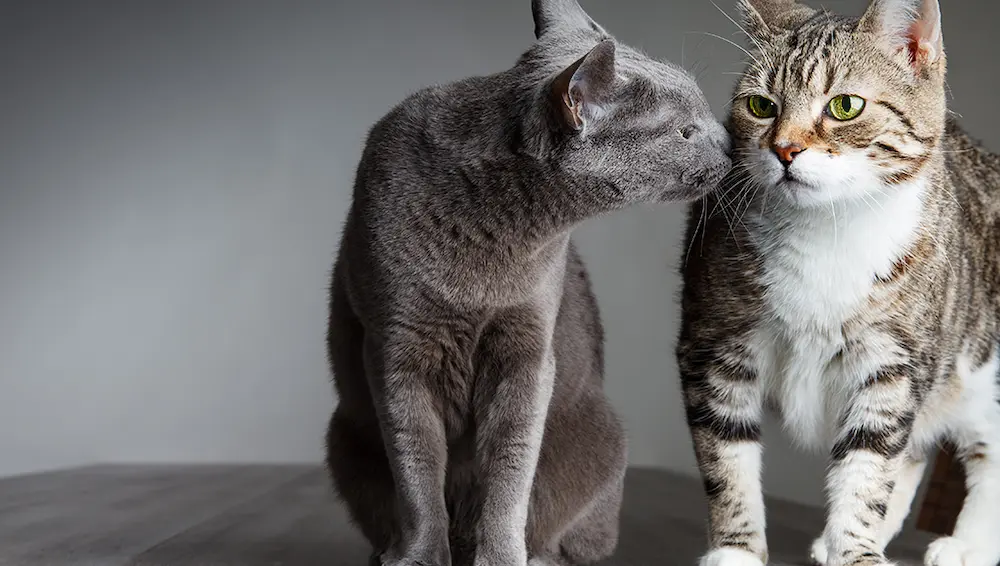
Bringing a new cat home can make your current feline feel jealous or threatened.Â
This leads to your
To prevent this, it’s essential to introduce new pets slowly and ensure your
Illnesses
Sudden changes in behavior, such as increased clinginess at night, can sometimes signal health issues.Â
Cats are adept at masking pain or discomfort, and they might seek you out more when they’re not feeling well, viewing you as a source of comfort.Â
Regular vet check-ups are vital to catch any underlying issues early.
Safety
Cats naturally seek out the safest spot in their territory, especially at night.Â
If your
Ensuring a secure environment, with cozy, safe spots for them to sleep can help reduce their need to seek you out solely for safety reasons.
They Want To Play
Cats are nocturnal creatures and may simply become more active at night and see this as the perfect time to engage in play.Â
If your
Engaging in regular playtime during the day can help tire them out and reduce their nighttime energy bursts.
They Feel YOU Need It
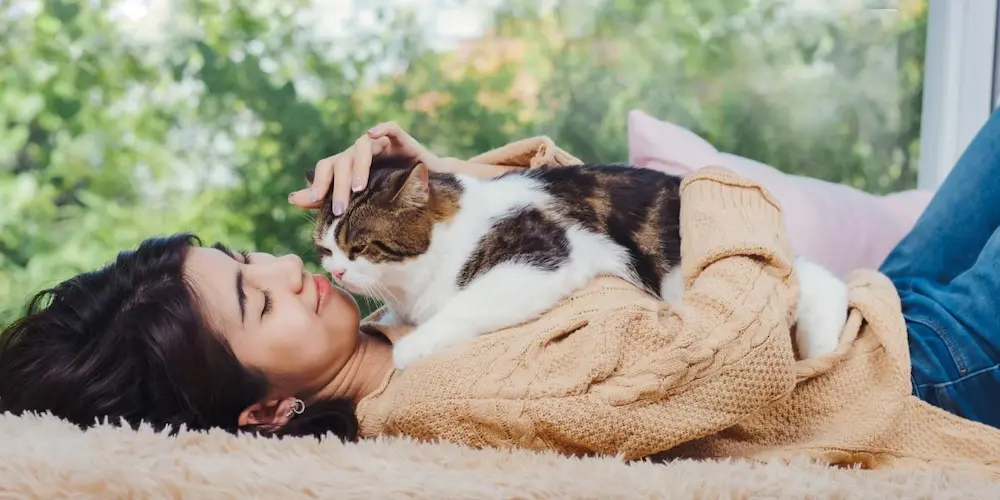
Cats are incredibly intuitive and can pick up on their owner’s emotions.Â
If you’re feeling stressed or sad, your
They sense your need for support and respond with cuddles and closeness.Â
Acknowledging and reciprocating their affection can be healing for both you and your
Is This an Issue You Need To Solve?
As there are numerous reasons for sudden affection from cats at night, it’s crucial to understand whether this behavior is a cause for concern.Â
Nighttime affection could signal underlying issues. But, it’s not always a problem.Â
Sometimes, it’s simply a sign of their love and the desire for more interaction, particularly if your days are busy.
How To Solve It If It’s Bothering You?
As a veterinarian with decades of experience under my belt, I’ve seen firsthand how perplexing and sometimes bothersome it can be when your
Luckily, there are practical steps you can take to address this behavior.Â
Let’s jump into some effective strategies.
Play Before Bed
One of the most straightforward strategies to reduce clinginess in cats is incorporating playtime before bed.Â
Cats are naturally more active during dawn and dusk, so they may experience a sudden burst of affection and energy at night.
Hence, a proactive approach involves tiring them out right before you plan to sleep.
Think of this playtime as simulating their hunting instincts.Â
The goal here isn’t just to play but to provide a rigorous activity session that exhausts them physically and mentally.
Here’s how I do it: About 30 minutes before my bedtime, I engage my
We go through laser chase, feather wand theatrics, and sometimes, the classic “chase the ball†game. This routine satisfies their predatory instincts and helps them associate nighttime with rest post-play.
Change Your Cat ‘s Feeding Schedule
Automatic Cat Feeder With 180-Day Battery Life
$35.00
This clever device is a game-changer for pet owners tired of feline food theft. With a press-to-lock top lid, it says a firm “no” to overeating and ensures your voracious
Another aspect to consider is your cat’s feeding schedule. Often, cats will sleep after a hearty meal.Â
If your
Adjusting when you feed your
Instead of one large meal, break down your
And here’s the crucial part: include a small meal close to your bedtime.Â
This replicates their natural hunting pattern of multiple small meals throughout the day and night, leading to a more natural sleep cycle aligned with yours.
For instance, in my practice, I recommend using automatic pet feeders for clients who might not be home to maintain this feeding schedule.Â
These gadgets can dispense small portions of food at set times, ensuring consistency.Â
Be mindful of the portion size to prevent overfeeding.
FAQ – Frequently Asked Questions
Why Does My Cat Only Come to Me When I’m Laying Down?
I’ve observed in my many years of practice that when owners are lying down, their body language is more open and inviting, signaling a safe and comfortable environment to their feline friends.Â
Think of it like this: when you’re lying down, you’re not bustling about the house, making noise, or engaging in activities that could potentially disturb a
Hence, your
Actionable Tips:
- Create a Dedicated Space: Next to where you usually lay down, set up a cozy spot specifically for your
cat . This could include a comfortablecat bed or a blanket that smells like you, encouraging them to stay close without needing to be directly on you. - Reward Independence: When your
cat chooses to lay in their designated area instead of directly on you, reward them with treats or affection. This positive reinforcement can help cultivate a habit of independence.
Do Cats Lay On Your Chest to Heal You?
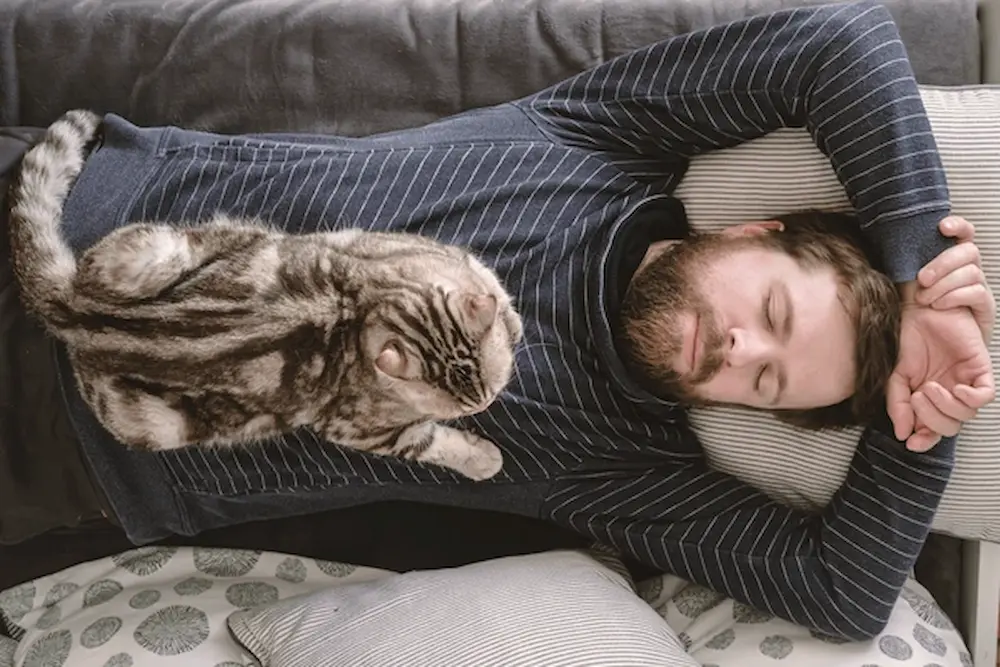
While it’s a charming thought that cats might have healing powers, the truth is a bit more down-to-earth.Â
Cats are incredibly intuitive and sensitive to human emotions and physical states.Â
They can detect when you’re not feeling well or if you’re emotionally down, so lying on your chest allows them to be close enough to provide comfort.Â
The rhythmic sound of your heartbeat and steady breathing can also be soothing for them.
This doesn’t mean cats have healing powers, but their presence can indeed be comforting and relieve stress.Â
The warmth from their body, the soft vibration of their purring, and the grounding presence they offer can have therapeutic effects on their human companions.
How to Encourage Independence in Clingy Cats
Encouraging independence in cats who’ve taken a liking to being overly affectionate at night is crucial for both the pet’s and the owner’s well-being.Â
As a veterinarian, I’ve recommended several strategies that have successfully helped pet parents foster a more independent nature in their cats.
Here’s what you can do to encourage independence in your overly affectionate
- Stimulate Their Minds: Offer puzzle feeders or toys that challenge your
cat mentally. This not only keeps them occupied but also satisfies their curiosity and need for exploration. - Safe Outdoor Access: If possible, provide a safe, enclosed outdoor area for your
cat to explore. Fresh air and new sceneries can do wonders for acat ‘s independence and overall satisfaction. - Ignore Nighttime Attention-Seeking: It’s tough, but ignore any attempts by your
cat to be overly affectionate or demanding at night. Responding only reinforces the behavior. Consider using earplugs if yourcat is particularly vocal.
Fostering independence in a clingy
It’s about creating a healthy balance that allows you and your
Maybe You Should Just Enjoy The Extra Attention From Your Cat ?
Understanding why my
I’ve learned that creating a space for my
But perhaps the most valuable lesson is recognizing the importance of simply enjoying these moments of affection.Â
While it’s crucial to foster independence, the spontaneous cuddles and quiet companionship at night are reminders of the unique bond we share with our cats.
So, unless there’s a problem causing this feline behavior, the next time your
